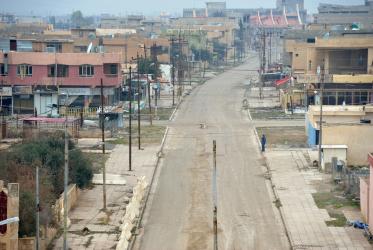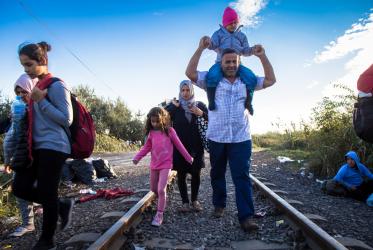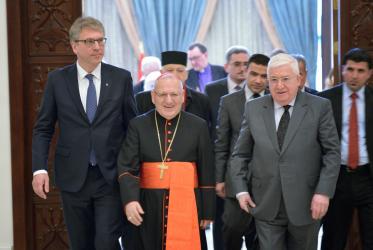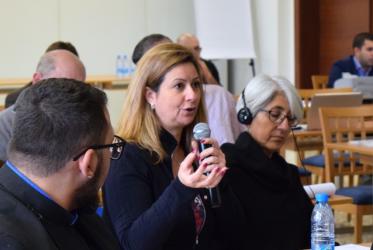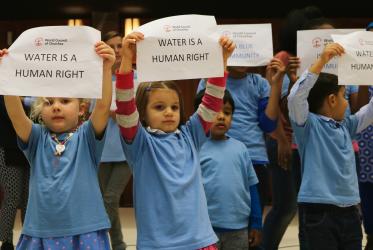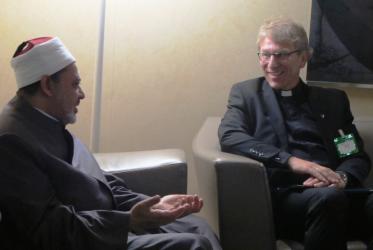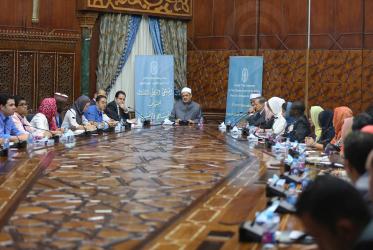Displaying 141 - 160 of 241
16 April 2017
In Lebanon, refugees face hardship - but find hope
16 March 2017
WCC gravely concerned over Israel’s travel ban
09 March 2017
“There are no strangers here” – Saint Irenaeus a key to unity?
19 December 2016
Churches’ diaconal action in the Middle East analyzed
01 December 2016
Plans for 2017 decided by WCC Executive Committee
01 December 2016
Dialogue flourishes between WCC, Muslim Council of Elders
30 September 2016
Seminar will address youth engagement, religion and violence
19 August 2016



